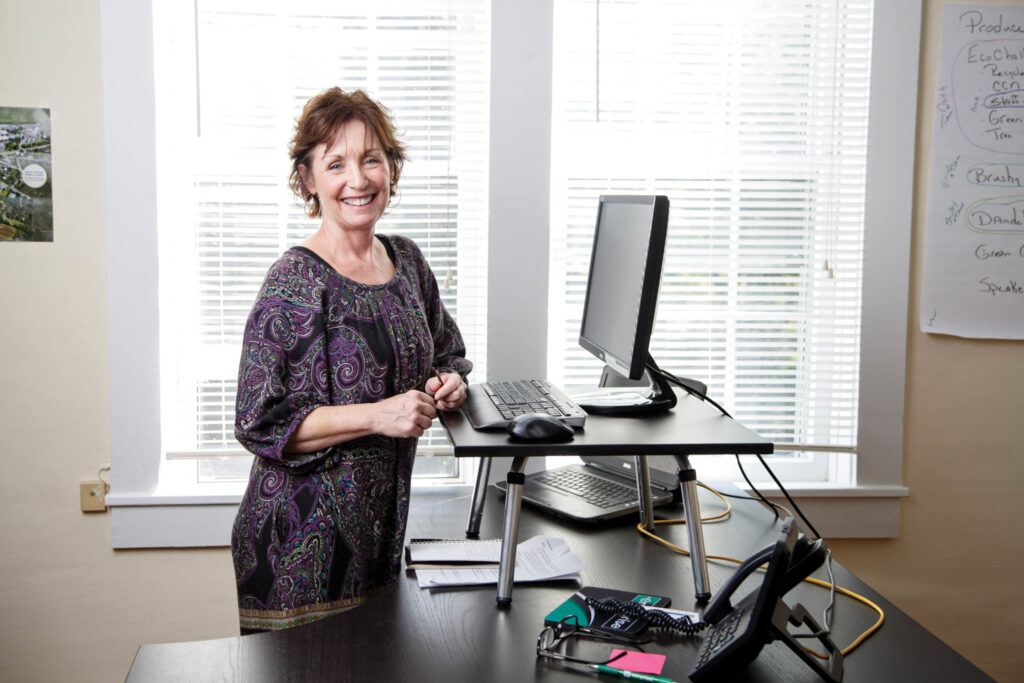What does the phrase “democratic community” mean to you?
To me, a democratic community means that all voices are heard and valued before decisions are made.
How do you interpret the Commitment to encourage “plain living”?
The definition of “plain living” to one person is different than the definition of “plain living” to another. It’s usually discussed in the context of sustainable living, but that isn’t my definition. I can’t say that I live plainly, because, for me, plain living means getting back to the land, growing your own food and being more connected to the hand- craftsmanship of life. I don’t live that way. But I do live mindfully in how I make my decisions. I choose to live in places where I can walk rather than having to use my car for everything – that was a mindful decision I made when I moved back to Kentucky. I try to buy local whenever I can because I understand the impact of this choice, whether I’m buying foods or goods or materials. The carbon impact, as well as the social equity impact on workers who are creating goods are important considerations if I make a purchase. So to me, there is a difference between living plainly and simply, and living mindfully. In my role as sustainability coordinator, I feel a high degree of confidence that I can help bring awareness here at Berea College to making mindful, sustainable choices, but I can’t say that I can teach how to live plainly.
How do you see “plain living” or mindful living encouraged day-to-day?
We’re very fortunate here at Berea College that there is a history and culture of being good stewards of our resources; Dining Services is a good example. Great attention is given to supporting our local farmers, including our own farm and gardens. With new construction projects, we strive to hit Leadership in Energy & Environmental Design (LEED) Silver, which ensures a reduction in energy and water use, helps support our local economy and gives attention to occupant comfort and well-being. We also focus on being good stewards of any waste we create with composting and recycling efforts rather than trucking everything to the landfill. I see all of these connections as something we experience everyday – from what we eat, to where we learn and live, to how we handle our own consumption and waste responsibly.
Berea’s Great Commitments are all interrelated. Describe how you see the commitment to encourage “plain living” as connected to the Commitment to live in a “democratic community.” Do these Commitments complement each other?
We are free to choose how, how much, and what we consume here in this abundant democratic society. Being an informed person about how our choices impact other people and the planet is a fundamental responsibility we all share.
The “plain living” Commitment has sometimes been called the “kitchen sink” Commitment because it has so many components. Are there aspects, other than plain living, that resonate with you?
Yes, to remain a residential campus resonates with me because it helps to foster the type of culture and community we have here. I believe our support to live, learn and work together in residence provides a much richer cultural experience and opportunity for life-long friendships to develop. I think Berea would be a dramatically different place if the college was a commuter school all four years of a student’s time here, and I do not think this would be for the better.


